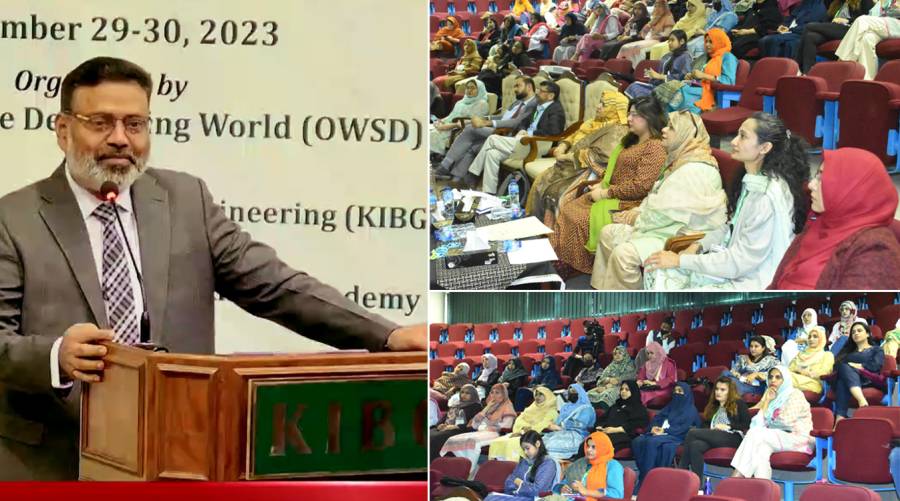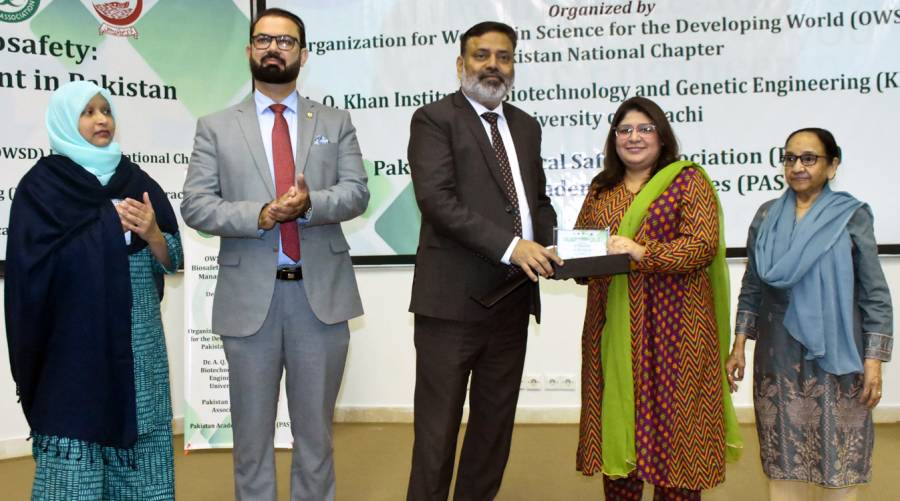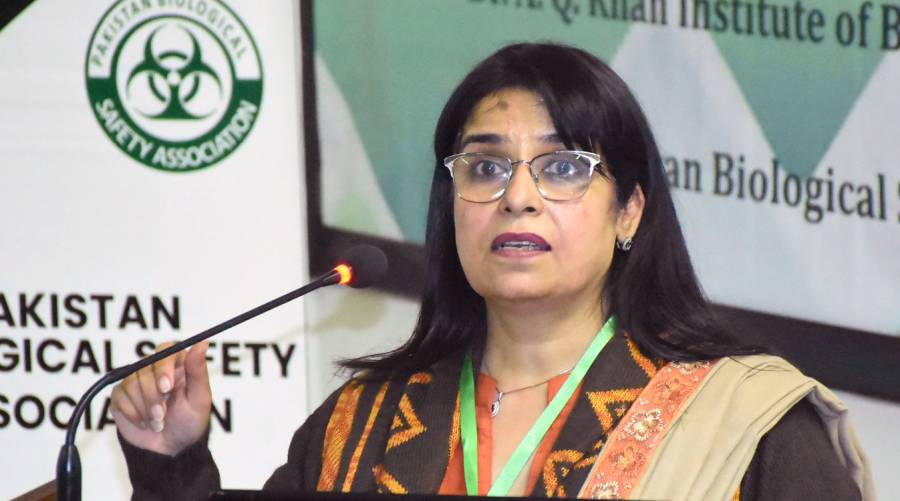KU moot seeks risk assessment SOPs for health workers
KARACHI: In a bid to safeguard healthcare professionals, a conference at Karachi University (KU) has called for the adoption of routine risk assessment protocols to identify potential risks inherent in work processes, conducting regular assessments to minimise hazards and maintain a secure working environment for healthcare practitioners.
The risk assessment process involves evaluating the possibility of untoward incidents occurring during work processes and assessing the resulting consequences and harm. This thorough evaluation enables workers to pinpoint potential hazards at each step or task, providing crucial insights to enhance safety protocols.
At the two-day conference titled Biosafety: Navigating Biorisk Management in Pakistan, Dr Shahida Qureshi, Chairperson and ex-advisor Paeds Research Laboratories at the Department of Paediatrics and Child Health, Aga Khan University Hospital, highlighted the key points in her scientific presentation on "Biorisk Management (BRM) in Laboratory Environment".
The event took place at the Jinnah Auditorium of Dr A Q Khan Institute of Biotechnology and Genetic Engineering at the University of Karachi.
Organized by the Organization for Women in Science for the Developing World (OWSD) Pakistan National Chapter and KU-KIBGE in collaboration with the Pakistan Biological Safety Association (PBSA) and Pakistan Academy of Sciences, the conference emphasized the importance of employing risk assessment tools in clinical risk management.
This approach aims to identify hazards, enhance lab functionality, improve healthcare services, and prevent adverse events that could harm both patients and healthcare workers.
Prof Dr Bina Siddiqui, President of OWSD Pakistan National Chapter, called on women in the country to unite and contribute to the development and advancement of science in Pakistan. She underscored the pivotal role conferences play in promoting a culture of science among women in scientific disciplines.
Dr Huma Baqi stressed the need for a holistic approach, emphasizing international collaboration, ethical principles, and equitable resource distribution to navigate the complex dimensions of scientific progress and ethical responsibility.
The conference also featured oral presentations of 15 scientific papers and articles by scientists, scholars, researchers, MPhil, and PhD students. Besides, 50 research posters were displayed, showcasing the latest advancements and research in the field.
Advertisement
Trending
Popular
Coconut oil supplement shows promise for rare heart condition, ...
-
Meet the newly discovered brain cell ...
03:15 PM, 14 Feb, 2025 -
Can drinking ketones improve heart ...
11:59 AM, 14 Feb, 2025 -
Bariatric surgery proven safe, ...
03:02 PM, 12 Feb, 2025 -
University of Karachi, Medics ...
11:52 AM, 11 Feb, 2025






